By Fikret Akfırat
Following Turkish President Recep Tayyip Erdoğan’s visits to Baghdad and Erbil on April 22, the Iraq-Türkiye Development Road Project gained international attention and is currently being discussed from a number of angles. Beyond its economic aspect, the main focus of the talks will be the adjustments it will make to regional balances. Analyzing how the Development Road will affect regional and international geopolitics will require assessing the areas where the interests of the Gulf countries, the US, Russia, China, Iran, Saudi Arabia, and Türkiye collide and overlap with this project.
What is the “Development Road Project”?
The Development Road Project, which was announced to the public on May 27, 2023, by Iraqi Prime Minister Mohammed Shiite al-Sudani, dates back to the 1980s. Representatives from the transport ministries of Iran, Jordan, Kuwait, Oman, Qatar, Saudi Arabia, Syria, Türkiye, and the United Arab Emirates (UAE) were present when Al-Sudani announced the project during a conference. During the visit of Turkish President Erdogan on April 22, 2024, Türkiye, Iraq, the UAE, and Qatar signed a memorandum of understanding on the project.
The project, dubbed the “Dry Canal” in the 1980s, consists of road and railway lines and complementary connection lines from the Gulf port of Al Faw to Türkiye. The recent history of the project dates back to 2010, when the Al Faw port project was launched during the times of prime minister Nouri al Maliki.
The project is planned to include 1,200 km of railway and road infrastructure, starting from the Great Port of Faw in the Persian Gulf and continuing towards the north of Iraq to reach Türkiye. With a budget of 17 billion dollars, this project is planned to follow a route including the cities of Basra, Baghdad, and Mosul and connect to the railway network in Türkiye. With this project, which the Iraqi government calls the “Development Route,” transportation from Türkiye to the Gulf will be provided within hours by trains with a speed of 300 km per hour.[1]
The government of Iraq regards the project as a cooperative regional development project. So does Türkiye, which is now the project’s main political partner. The Development Road has the potential to bring together Türkiye, Iraq, the UAE, Qatar, Kuwait, Saudi Arabia, Iran, and even Syria. It offers a favorable opportunity for these countries to develop and win together.
What does Iran say?
Türkiye’s foreign minister, Hakan Fidan, expressed his hope that Iran would join for the Development Road program. Fidan emphasized that they consider this project within the framework of regional development and common prosperity and that joint security mechanisms should be established for this purpose.[2]
“The Development Road Project is a great opportunity for the region,” declared Iran’s Deputy Minister of Roads and Urban Planning, Shahryar Efendizade, who was present at the conference on May 27, 2023, where the project was announced, in support of the project.[3]
However, some claim that Iran is against this project because it will be an alternative to the regional connection lines that pass through Iranian ports. To counter those viewpoints, it is important to emphasize the following: The Development Road Project has the potential to upend the order that was established following the US invasions of Iraq in 2003 and the Gulf War in 1991. The status quo of today denotes a divided country with a state structure incapable of governing the whole nation. The continuation of the current situation is an important factor in maintaining US influence in West Asia. Therefore, the Development Road project, which strengthens the central state of Iraq, is in the interest of Iran as well as Türkiye.
In addition, the fact that the project enables various political groups in Iraq that are in competition and conflict with each other to meet at a common point is an important factor in the stability of Iraq. This situation limits the influence of the US, which benefits from the continuation of the fragmented structure in Iraq. All of this is in Iran’s interest.
What is the US’s approach to the project?
What does the Development Road Project mean in terms of the “corridor wars” between the Belt and Road Initiative and the counterinitiatives the United States of America put forth to prevent this? The first thing that comes to mind here is the India-Middle East-Europe Economic Corridor (IMEC), put forward by the US and from which Türkiye, Iraq, and Iran are excluded. At the G-20 Summit on September 9-10, 2023, IMEC was put forward as a project aiming to “build a railway and port network that will connect India to Europe via the Middle East”.
It was remarkable that this project was brought to the agenda immediately after two significant developments that represented the US’s loss of initiative in West Asia. Firstly, peace was established between the two countries on March 10, 2023, when the Foreign Ministers of Iran and Saudi Arabia met in Beijing under the mediation of China. Secondly, at the BRICS Summit held in Johannesburg, South Africa, on August 22–24, 2023, it was announced that Saudi Arabia and the UAE wanted to join the organization. (From January 2024, Saudi Arabia, the UAE, Iran, Egypt, and Ethiopia joined BRICS).
The IMEC project aims to establish a transportation corridor from India to Europe through the corridor that will reach the United Arab Emirates, Saudi Arabia, Jordan, and Israel’s Haifa port. The primary goal of the IMEC is to cut Saudi Arabia, the United Arab Emirates (UAE), and the Gulf states off from the Belt and Road Initiative. It was proposed as a persistence of the Abraham Accords and the normalization initiative between Israel and Arab countries. But following Hamas’ AKSA Flood action on October 7, 2023, this project—like the US-imposed attempt at normalization with Israel—was doomed from the start.
There appears to be a contradiction between the Development Road Project and the US Corridor plans. While the USA is working to implement corridor projects that do not include Iran, Iraq, or Türkiye, the Development Road Project has the potential to unite the countries in the region.
Saudi Arabia’s stance
Despite Iraq’s invitation, Saudi Arabia was not listed as one of the nations taking part in the Development Road. But this should not be misleading. Iraq has wide-ranging cooperation projects in many sectors, most notably energy, with Saudi Arabia and other Gulf Cooperation Council (GCC) members.
At a time when the United States of America is losing its global hegemony, Saudi Arabia also has no intention of withdrawing from the Belt Road Initiative and BRICS. In addition, the goals of the China-Saudi cooperation projects of the Belt and Road Initiative and the Saudi Vision 2030 announced in 2016 overlap significantly. This road map from Crown Prince Mohammed bin Salman is supported to move the country from an oil-dependent economy to a diverse and dynamic one. It should also be noted that Saudi Arabia is one of China’s strongest global trading partners. According to a report by the Green Finance & Development Center at Fudan University in Shanghai, Saudi Arabia had the largest construction volume of any of the 45 countries receiving Chinese financing and investment in the first half of 2023, with $3.8 billion, followed by Tanzania with $2.8 billion and the UAE with $1.2 billion. China has been Saudi Arabia’s biggest oil market since 2013, making up 21.7% of the nation’s oil exports in 2022.[4]
China and Russian Federation?
The Development Road, which stands out as an alternative to the Red Sea and Suez Canal, will enable goods from China to reach Europe 20-25 days earlier. Therefore, it also represents a favorable route for the Belt and Road Initiative, where developing countries meet with the goal of shared development. In addition, the goal of the Belt and Road Initiative is to establish not one but multiple routes that will provide connectivity between continents and countries. In this context, the claim that the Development Road, which is planned to be integrated with the Belt and Road Initiative via the Central Corridor, will block the connection roads passing through Iran does not reflect the truth.
Also, Russia is interested in maintaining stability in the region entirely because it has substantial energy investments in the north and throughout Iraq. Furthermore, it can be said that Russia is interested in Iraq and Türkiye cooperating given its strategic ties to both countries separately. In the region, the US is playing for instability and plans to escalate the conflicts among the countries in the region. This project, which has the potential to resolve the conflicts between Iraq and Türkiye and create a safe environment in West Asia, appears to be compatible with the interests of Russia, China, and Iran.
The aspect of the Development Road Project related to security
One of the most significant topics for comprehending the US approach to the Development Road Project is the security component of the Project. Within the scope of the Project, it seems that Türkiye and Iraq have started to resolve their differences. Especially regarding the measures to be taken against the PKK. While Iraq signed the Development Road Project agreement with Türkiye, it also accepted the PKK as an illegal organization. This will provide a substantial legal basis for Türkiye’s expanding operations against the PKK in northern Iraq. In addition, with the agreement made by Iraq with Türkiye, it was decided to deploy operational forces, albeit initially in symbolic numbers, in the north of the country, where it has not maintained a military force since 1991. In the news in the Iraqi press, it was reported that the Iraqi Border Guards established two military bases in the Kishani village of Zakho district, near the Turkish border. Again, Iraqi sources stated that Iraqi border guards would establish bases near both the Iranian and Syrian borders.
This is a new situation, and it disrupts the order that the US is trying to establish. It would not be in the interest of the US for Türkiye to launch joint operations with Iraq against the PKK. Because, when Bagdad will be consolidating its power throughout Iraq, as it did before 1991, the Regional Government in the north—which the US and Israel have been working hard to establish for the past 30 years—will be in jeopardy. The main agenda in the US is the withdrawal of American soldiers from both Iraq and Syria. It is asserted that the priority of the relevant authorities in Washington is to prevent Iran from filling the gap after the US withdrawal. This is not wrong, but it is incomplete. The main priority of the USA is to preclude the establishment of a Türkiye-Iran partnership in the region. If the de facto partnership between Türkiye and Iran, which prevented the US and Israel from achieving their goals in the independence referendum held in northern Iraq in 2017, expands further and leads to developing a common stance throughout the region, all the plans of the US will be in vain.
What does the PKK say?
The fact that the Türkiye-Iraq agreement has led to a result that actually demonstrates the will of the central government in Baghdad to provide security throughout Iraqi territory is an important development in itself.
PKK also sees this situation as a significant danger.
The Türkiye-Iraq agreement is evaluated as follows in PKK media organs:
1- “The Turkish army’s agreement with the Iraqi Army to maintain forces and conduct operations within Iraqi territory at a depth of 40-50 km is a serious situation.”
2- “Iraq’s establishment of a joint operation room with Türkiye against the PKK creates a more dangerous situation.”
3- “The settlement of Iraqi Border forces on the border with Türkiye and Syria, and especially the fact that KDP forces on the Turkish border are in a position that facilitates Türkiye’s affairs under the Iraqi flag, creates a situation that further aggravates the problems.”[5]
In another article in PKK sources, the Development Road project is discussed as a “war road project”. The emphasis is on the security aspect of the project rather than its economic aspect. In summary, two points stand out in this evaluation:
1- The route of the project surrounds the areas controlled by the Regional Government in the north of Iraq.
2- They want to break the influence of the PKK in the region called the “Central Region”, where Yazidis and Turkmens live, apart from the Kurds.[6]
Status quo change to the detriment of the USA
While discussing the Development Road Project, it should not be overlooked that the conditions are ripe to change the status quo that the US has been trying to create in Iraq for 30 years. There appears to be a confrontation between those who want stability in the region and those against it. It seems that all the countries in the region, especially Türkiye, Iraq, Iran, Russia, and China, are gradually coming together at the same point: to overcome the instability caused by the US in Iraq and Syria. In conditions where Atlantic hegemonism is declining and multipolarity is rising, cooperation from the regional to the global comes to the fore instead of regional rivalries.
[1] Anadolu Agency, June 19, 2023. https://www.aa.com.tr/tr/analiz/3-soruda-turkiye-basra-korfezi-kalkinma-yolu-projesi/2925828
[2] Turkish Foreign Minister Hakan Fidan’s interview with CNN Turk, March 18, 2024. https://www.disisleri.gov.tr/disisleri-bakani-sayin-hakan-fidan-in-cnn-turk-e-verdigi-mulakat–18-mart-2024.tr.mfa
[3] Mehr News Agency, Iran: Development Road Project is a great opportunity for the region, May 27, 2023. https://tr.mehrnews.com/news/1909509/İran-Kalkınma-Yolu-Projesi-Bölge-için-büyük-fırsat
[4] https://asiasociety.org/policy-institute/china-saudi-rmb-settlement-will-insulate-oil-trade-us-sanctions
[5] https://firatnews.com/analIz/turkiye-ve-kdp-nin-tehlikeli-provakasyonu-197707







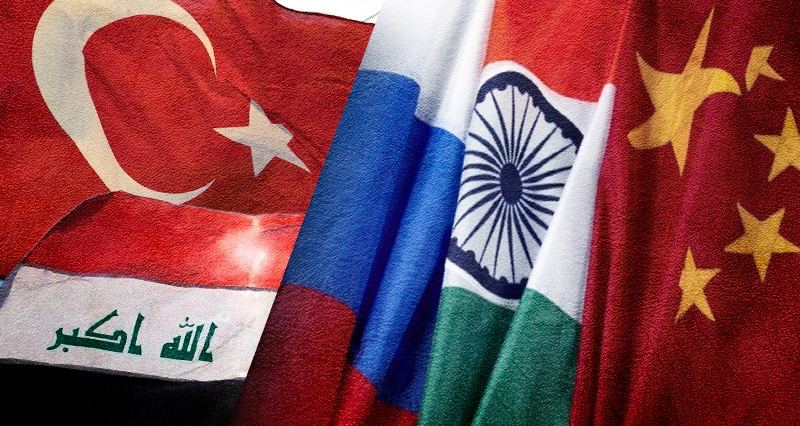

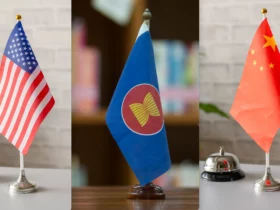
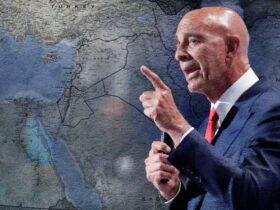
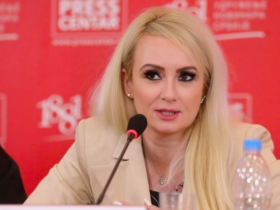
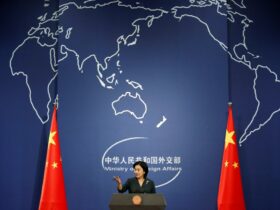
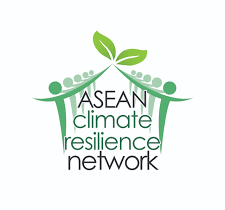



Leave a Reply